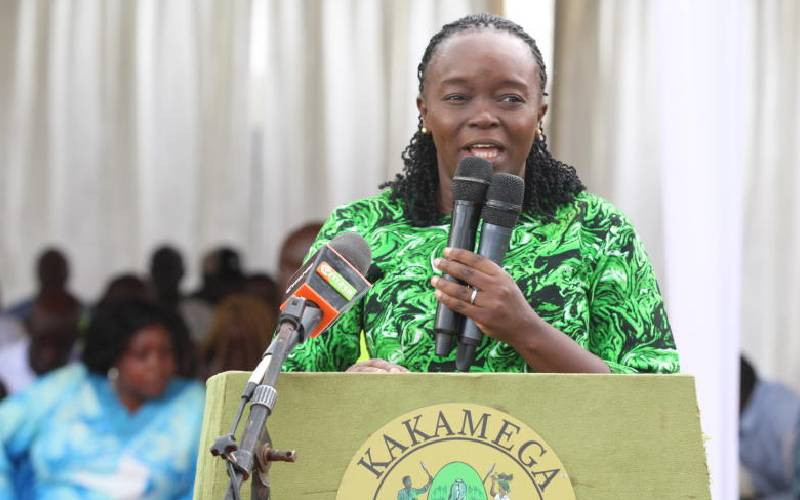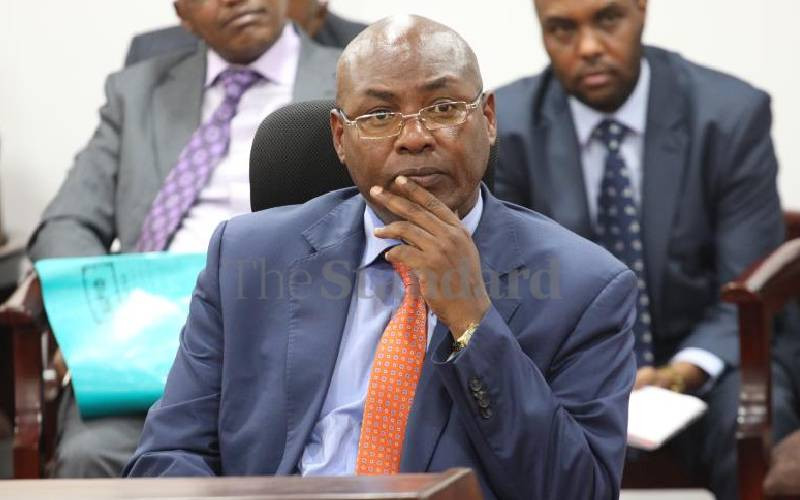How the government procures and distributes Covid-19 vaccine to millions in need is the next battle against the pandemic, even as the Health ministry insists a lot is going on behind the curtains.
While Health Chief Administrative Secretary Mercy Mwangangi said Kenya would have access to a vaccine once one is approved, Amref Health Africa Group CEO Githinji Gitahi says it is not all about procurement.
Speaking at the launch of a study on effects of Covid-19 on youth and persons living with HIV at a Nairobi hotel yesterday, Dr Gitahi said while it might appear affordable to buy vaccine at Sh1,000 per person for the prescribed two doses, a lot of funds would be needed for distribution, storage and other logistical operations.
“It is not vaccines that work but vaccination. It means even as the vaccine is available, we have to be prepared to receive it,” he said.
Issues to be considered to ensure the effectiveness of the vaccine include whether Kenya has the right syringes, or if it will vaccinate the right people and at the right time.
Dr Mwangangi, while not disclosing much about the “big plans” the government has on a Covid-19 vaccine, said: “In the next few days, you will be hearing more and more about it (vaccine).”
Clinical trials
She said the country was doing estimates of the resources it would need and that it had communication experts on the ground collecting information that would be key in the roll-out of the vaccine.
“We shall engage healthcare workers, private sector and hospitals on what role they will play,” she said.
While Kenya is taking part in the COVAX programme led by World Health Organisation to find a vaccine for Covid-19 that has seen the ChAdOx vaccine by University of Oxford and AstraZeneca having its clinical trials in the country, the nation may end up procuring the vaccine from other manufacturers whose trials are at the tail end.
For example, a vaccine by Pfizer-BioNTech already has been approved in the United Kingdom. Kenya is still at phase one of the ChAdOx vaccine, where 40 healthcare workers have been dosed in the Kenya Medical Research Institute (Kemri) Kilifi Welcome Trust-led study.
Gitahi explained that the cost of vaccination would be determined by the population. In the case of Kenya, 20 per cent of the population, which translates to about 11 million people who are at high risk, among them those with diabetes and hypertension, will be prioritised.
The price of a vaccine ranges between Sh500 and Sh2,000 per dose. The wholesale price of the vaccine by Pfizer as at November was Sh2,000.
“The government needs to budget for it (vaccine), maybe look for donor support. This is, therefore, something that is not happening in the first few months when Kenya gets its first dose,” Gitahi said.
Stay informed. Subscribe to our newsletter
 The Standard Group Plc is a
multi-media organization with investments in media platforms spanning newspaper
print operations, television, radio broadcasting, digital and online services. The
Standard Group is recognized as a leading multi-media house in Kenya with a key
influence in matters of national and international interest.
The Standard Group Plc is a
multi-media organization with investments in media platforms spanning newspaper
print operations, television, radio broadcasting, digital and online services. The
Standard Group is recognized as a leading multi-media house in Kenya with a key
influence in matters of national and international interest.
 The Standard Group Plc is a
multi-media organization with investments in media platforms spanning newspaper
print operations, television, radio broadcasting, digital and online services. The
Standard Group is recognized as a leading multi-media house in Kenya with a key
influence in matters of national and international interest.
The Standard Group Plc is a
multi-media organization with investments in media platforms spanning newspaper
print operations, television, radio broadcasting, digital and online services. The
Standard Group is recognized as a leading multi-media house in Kenya with a key
influence in matters of national and international interest.








